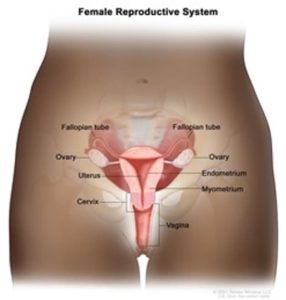Approximately 14,500 women were diagnosed with cervical cancer last year. Thanks to awareness events and programs centering around cervical health, the impact of this form of cancer has been dramatically reduced. Cervical Health Awareness Month occurs in January. It is one program that reminds women that cervical cancer is preventable with appropriate vaccinations and screenings.
Why Cervical Health is Important

The cervix is located in the lower part of the uterus that connects to the vagina. Cervical cancer is a disease in which cancer cells arise in the cervix, which connects the uterus to the vagina. The cervix has two parts that contain two different types of cells:
- The Endocervix:
- Located in the opening of the cervix that leads into the uterus.
- It contains glandular cells.
- The Exocervix (or ectocervix):
- This is the outer part of the cervix that your doctor can see during a speculum exam.
- It contains squamous cells.
The transformation zone is where these two cell types meet in the cervix. It is also the place most cervical cancers begin. Cervical cancer is when normal cells gradually develop abnormal changes and become precancerous. In some cases, precancerous cells will go away without any treatment, but precancerous cells can continue to grow uncontrollably and turn into invasive types of cancer.
Early screening and vaccination can prevent almost all cervical cancers. A pap test screens for precancerous cells, and an HPV (human papillomavirus) test looks for the virus that can cause cancer. HPV is almost always the cause of cervical cancer. The HPV vaccine prevents infection with specific subtypes of HPV that cause around 70% of cervical cancers.
Promoting Cervical Health for Yourself and Future Generations
There are many ways to get involved this month, whether you’re on top of your cervical health or not. During the heightened awareness created by Cervical Health Awareness Month, you can:
- See your OB/GYN annually. If it’s been more than 36 months since your last cervical cancer screening, get back on the appointment books.
- Learn more about cervical cancer risk factors, prevention, early detection, treatment, and its connection with HPV.
- Talk with your doctor about getting the HPV vaccine.
- You can help promote the importance of cervical health and cervical cancer prevention by sharing prevention messages through social media. Links to resources to share in your posts can be found here.
Participating in research studies can help you take the first step in prioritizing your health. Seattle Clinical Research Center specializes in women’s health. We conduct studies for women of all ages as a part of our mission to continue advancing care options for conditions affecting women.

Call us today at (206) 522-3330 x2 or visit our website to view enrolling studies.
Sources:
https://www.aacr.org/patients-caregivers/awareness-months/cervical-cancer-awareness-month/
https://www.nccc-online.org/cervical-health-awareness-month/
https://www.cancer.org/cancer/cervical-cancer/about/what-is-cervical-cancer.html



